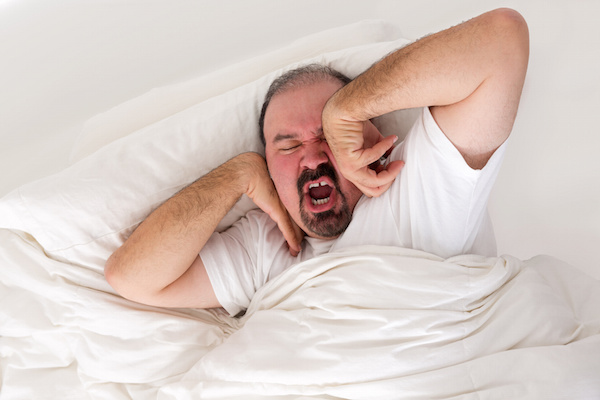
Is Sleeping With Your Mouth Open Bad for Your Teeth and Health?
A new study indicates that breathing through your mouth while you sleep doesn’t just put you at risk for snoring; it also leads to greater levels of tooth decay
Why is this the case? It has to do with saliva, acidity, and bacterial activation which are all impacted by mouth breathing.
The team of researchers from the University of Otago in New Zealand published their findings in the Journal of Oral Rehabilitation. Part of the impetus for the study was a marked increase in dentists reporting patients complaining of dry mouth, especially during sleep or upon awakening. Dryness during sleep can be linked to other conditions such as sleep apnea when sleep apnea is present and mouth breathing is used as a way to make up for poor airway airflow. Having the mouth open and snoring or open after frequent apneas can often lead to the dryness doctors hear about from their patients.
Mouth breathing during sleep causes saliva to evaporate
This isn’t just a problem with discomfort. Saliva is important for keeping the mouth’s acidity under control. For that reason, a lack of saliva can lead to increased acidity and increased tooth decay.
Acidity in the mouth leads us to loss of tooth enamel through erosion and tooth decay or caries cavities
When the mouth is acidic and there isn’t saliva to counterbalance the acidity, the enamel begins to slowly erode. Likewise, when bacteria in the mouth feast on food particles, they create acidity as a byproduct. That acidity causes tooth decay in the form of cavities.
To be sure there was a difference in open- versus closed-mouth sleep, the researchers measured acidity levels on patients. Using just 10 healthy volunteers, the scientists measured pH and temperature levels inside the mouth while the patients slept. The volunteers wore a device in their mouths that constantly measured pH levels as well as the temperature of the back of the incisors. They wore the devices for two independent 48-hour periods.
For one of the 48-hour intervals, half of the patients slept closed-mouth while the other half wore nose clips to force mouth-breathing. The cohorts switched for the second 48-hour interval, and those who had breathed through their nostrils now wore nose clips forcing mouth-breathing and the others were free to breathe without intervention.
At stages during the night, acidity levels in the mouths of individuals who breathed through their mouths fell well below the threshold when tooth enamel begins to break down due to the presence of saliva in the closed mouth. The saliva reduces overall pH to that even below normal daytime breathing and thus has a protective effect on the teeth and gums by monitoring acidity. Mouth-breathing, however, has a detrimental effect by raising the pH levels in the mouth to those known for risk of tooth decay and damage. Sleeping with the mouth open has a negative effect on the mouth’s acidity and can cause tooth decay and cavities.
So what can be done with this open mouth knowledge?
Sometimes mouth-breathing is the result of a short-term effect like a cold and stuffy nose. Other times, there may be a physiological reason for mouth breathing that could include an obstructed airway, narrow nose features, ongoing allergies or environmental hazards, a bedroom fan on too high, sleep apnea, or a host of other issues. If the mouth-breathing is caused by a physiological factor, it may be worth it to alter the airway surgically or using a medical device like a mouth guard or CPAP or BiPAP machine.
In any case, the best protection for your teeth includes daily flossing, brushing in the morning and right before bed with a toothpaste containing fluoride, and biannual cleaning appointments with your dentist. If you have any oral health concerns ranging from mouth breathing to normal daily dental care, the team at Artistic Touch Dentistry will be happy to help get you on track and plan for your overall dental well-being.
Likewise, if you’re concerned about a child or partner’s mouth breathing and its effect on their oral health (and your sleep!), feel free to call your Melbourne, Florida dentist office for their appointment time today. With appropriate interventions, we can have your family’s teeth protected even during sleep!
Reference:
Paddock, C. (2016, February 8). “Breathing through mouth during sleep may increase tooth decay risk.” Medical News Today. Retrieved from
http://www.medicalnewstoday.com/articles/306228.php

